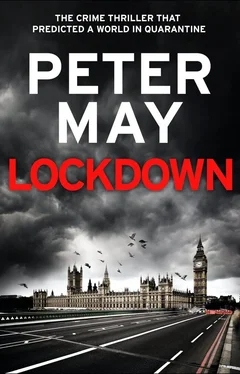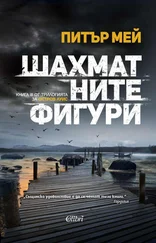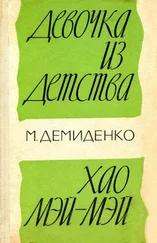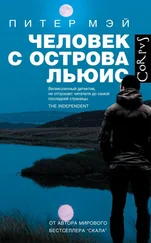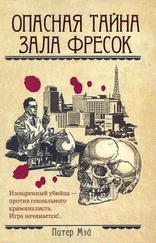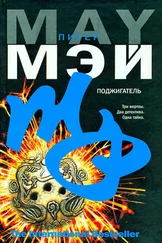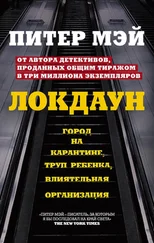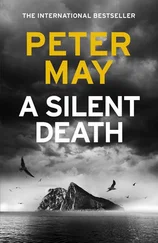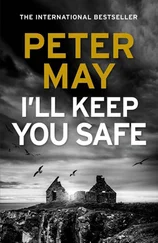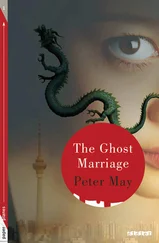But still the shock when he slid the top drawer out forced him to step back. A man’s head stared out at him, eyes wide open, flesh chalk-white and faintly frosted. MacNeil had to force himself to open the others. Legs, arms, hands, feet. An entire torso in the bottom drawer. A woman.
MacNeil slammed the door shut and stood breathing stertorously, trying to stop the bile rising from his stomach. This was sicker by far than Foetus Man’s jam and bread sandwich. This was real. He staggered out into the studio and looked around at all the body pieces that Flight had ‘sculpted’. He strode across the studio floor and wrenched the work in progress from its support spike, raising it above his head and smashing it down on the edge of the table. The half head separated itself from the arm and rolled across the floor, and the exposed section of the arm split open. There was a crack like the report of a rifle, and the arm hung in two halves in his hand, the bone broken clean through. And bone, he now knew, it was. Human bone. Flight was no sculptor. He was plagiarising nature. Taking human body parts and manipulating them to his own twisted design. Disinfected, preserved, plasticised, painted, whatever the hell it was he did to them.
And MacNeil knew also that Flight had lied about knowing Kazinski. Knew that they must have been collaborating ever since Kazinski got his job at the crematorium. Supplier of body parts to the celebrated sculptor. He dropped the arm as if it were burning hot, barely able to control his anger and disgust. Is this where that little girl had been butchered? The flesh stripped from her bones, her skeleton disjointed. He looked back into the storeroom with its stained workbench and array of cutting tools and felt sick to his stomach.
‘Flight!’ he roared, but was greeted only by silence.
He ran out on to the landing and up the second flight of stairs two at a time. He called Flight’s name again, but there was still no response. Three doors opened off a short corridor. He threw them open in turn. The first was a bathroom, cool blue ceramic, a glass shower. The wash-hand basin was a free-standing bowl set on mahogany. MacNeil saw himself, wild-eyed, staring back from a huge mirror that took up one wall. His face was bruised and scored, and he barely recognised himself. The second door led to a bedroom. Black silk sheets, a cream carpet, a faint smell of feet and eau de cologne. The third door opened into a large, spartan sitting room. Flight was sitting in a red leather recliner, one foot up on a footstool, one arm hanging over the right side of the chair. He was still wearing his surgeon’s apron. Only now, it was blood that covered it, seeping from the signature three bullet holes in his chest. Flight’s silver-bristled head was tipped forward. MacNeil moved slowly towards him and felt for a pulse at his neck. There was none, and the flesh felt cold already. But MacNeil knew he could only have been dead a matter of minutes.
He spun around, suddenly sensing his own vulnerability. There was no one there. Not a sound disturbed the silence in the house.
MacNeil glanced at the black-lacquered sideboard. The door of the drinks cabinet stood open. There were two glasses on top of it, next to a bottle of Armagnac. One of the glasses held half an inch of dark, smoky amber. The other was empty.
MacNeil sat in the other recliner and dropped his head into his hands, running them through the fuzz of his short-cropped dark hair. There was no one in the house, he was sure of that. And yet in the time it had taken him to drive to the King’s Road and back, someone had come here and murdered Flight. Two glasses on the sideboard, one filled and untouched, the other empty. As if Flight had been interrupted in the act of pouring. One for himself. One for his killer.
Was it MacNeil who interrupted them? Was Flight’s killer still in the house when he came in? He supposed it was possible that while he was in the studio the killer had slipped down the stairs and made his escape. Silent, unseen. Like a ghost. A ghost that was haunting MacNeil wherever he went, killing everyone with whom he had contact: the kids on the housing estate in South Lambeth, Kazinski, and now Flight. He looked at the sculptor, head slumped on his chest, and thought that he was no loss to the world. He knew he would have to call this one in. But he didn’t want to be involved. An anonymous tip-off from Flight’s own phone would bring the local police, although maybe not until the curfew was over. What they found here would be largely self-explanatory.
MacNeil stood up and crossed to the sideboard. He went through all the drawers, careful not to disturb anything that might prove useful to the cops when they came. He found old flyers for exhibitions of Flight’s work, sketches and scribbled notes, a well-thumbed pack of Tarot cards, pens and pencils, receipts, some loose change. There was little else in the room that could be described as personal. MacNeil wondered where Flight kept the accumulated detritus of his own life. Or perhaps, since it was other people’s lives he collected, preserving them in pieces for posterity, he kept little or nothing of his own.
In the bedroom, next to his bed, MacNeil found the only piece of furniture in the apartment that didn’t look like it had been chosen from a Scandinavian mail-order catalogue. It was an antique roll-top bureau, a family piece, perhaps, from another life. MacNeil rolled back the top and found a mess of paperwork and accounts. Bills, receipts, invoices, an accounting notebook full of Flight’s tiny, neurotic scribbles. A brass holder was stuffed full of letters, still in their envelopes. A few pieces of private correspondence, but mostly paid and unpaid bills.
Finally MacNeil found gold. In a shallow drawer at the back of the bureau, nestling in green felt, was Flight’s address book. It was full to overflowing with business cards and addresses scribbled on folded scraps of paper. But here was the definitive collection of all Flight’s friends and acquaintances, from both his private and business lives, although MacNeil imagined that the dividing line between the two was probably pretty blurred.
Carefully, he started leafing through the alphabet. But there were so many names, and with no idea of what he was looking for, MacNeil quickly gave up and flicked through to K, where he found Kazinski’s telephone number. But no address. It would have been superfluous, a place Flight would never have gone, even in his worst nightmares.
He was about to thumb through the remaining pages, when MacNeil spotted a small square of paper, folded twice, and wedged in the spine. So he left the book open at K, pressed the spine flat and delicately retrieved the small scrap of paper. He unfolded it. There was a name scrawled on it, perhaps a nickname of some kind. Pinkie . And beneath it a telephone number. MacNeil could tell from the code that it was a mobile. Beneath the number was an address, but a line drawn across the paper seemed to separate the two, and MacNeil got the impression that they didn’t necessarily go together. Although it was possible that they were related in some way. And then he went very still. And in his head he heard Kazinski say, I don’t know the address. It was a big house. You know, some rich geezer’s place. It was somewhere near Wandsworth Common. Root Street, Ruth Street, something like that . MacNeil’s eyes were fixed on the piece of paper in his hand. The address was in Routh Road, Wandsworth.
MacNeil sat on the edge of the bed and held the paper between slightly trembling fingers, looking at the name and number and address until they blurred. He was hungry, and tired, and very possibly in shock. It was hard to concentrate. And then he had a thought. He reached for the telephone on the bedside and dialled the number on the piece of paper.
Читать дальше
